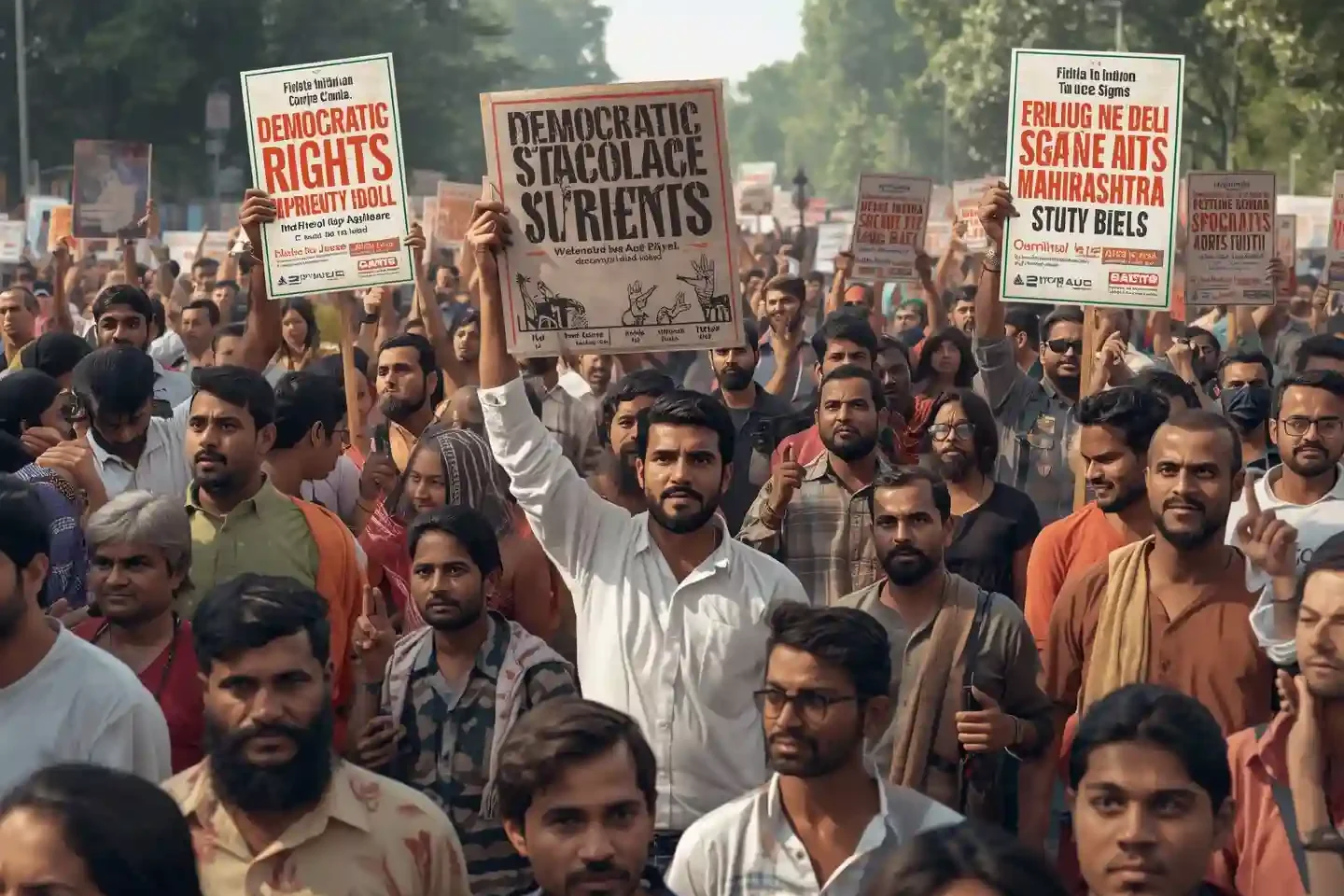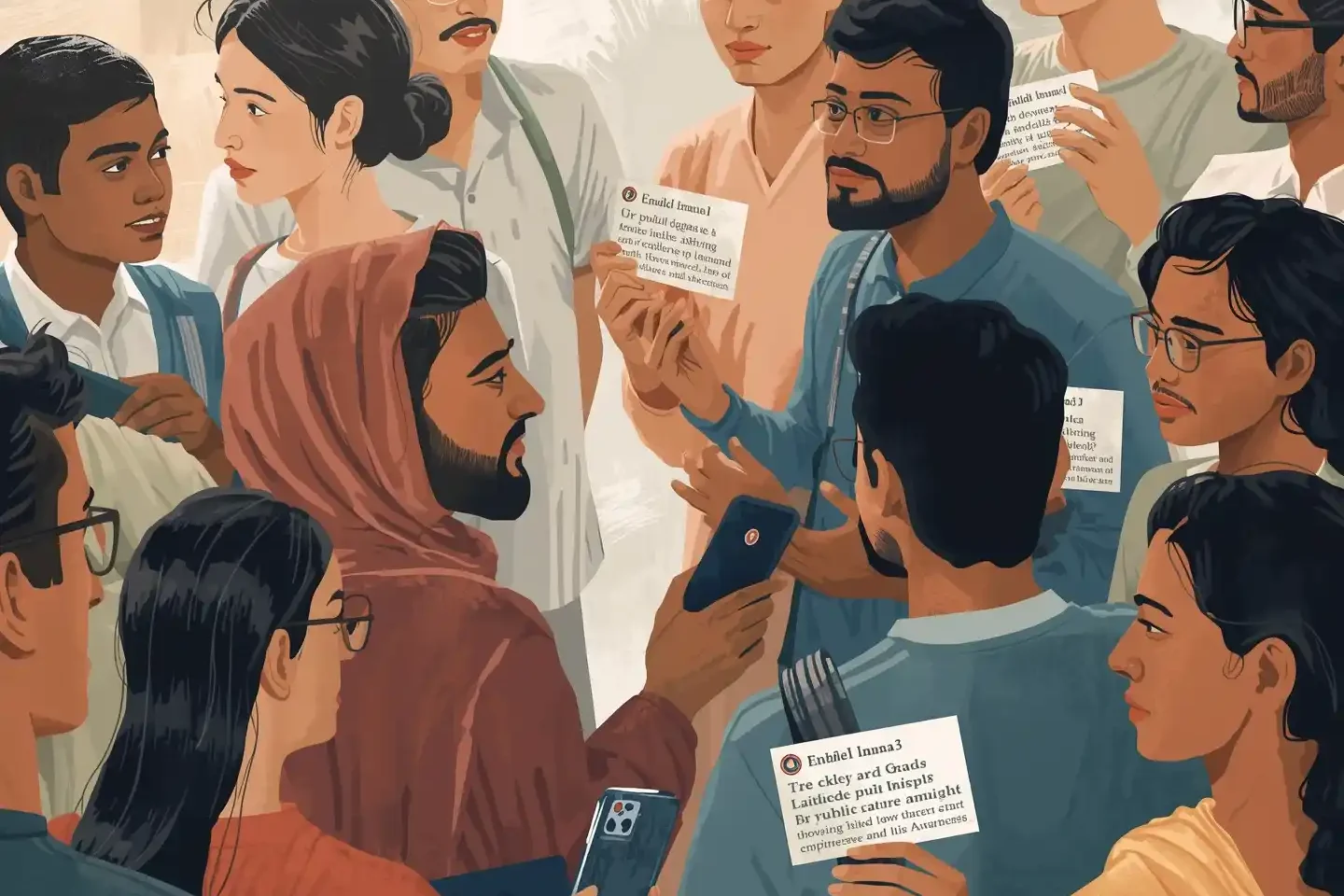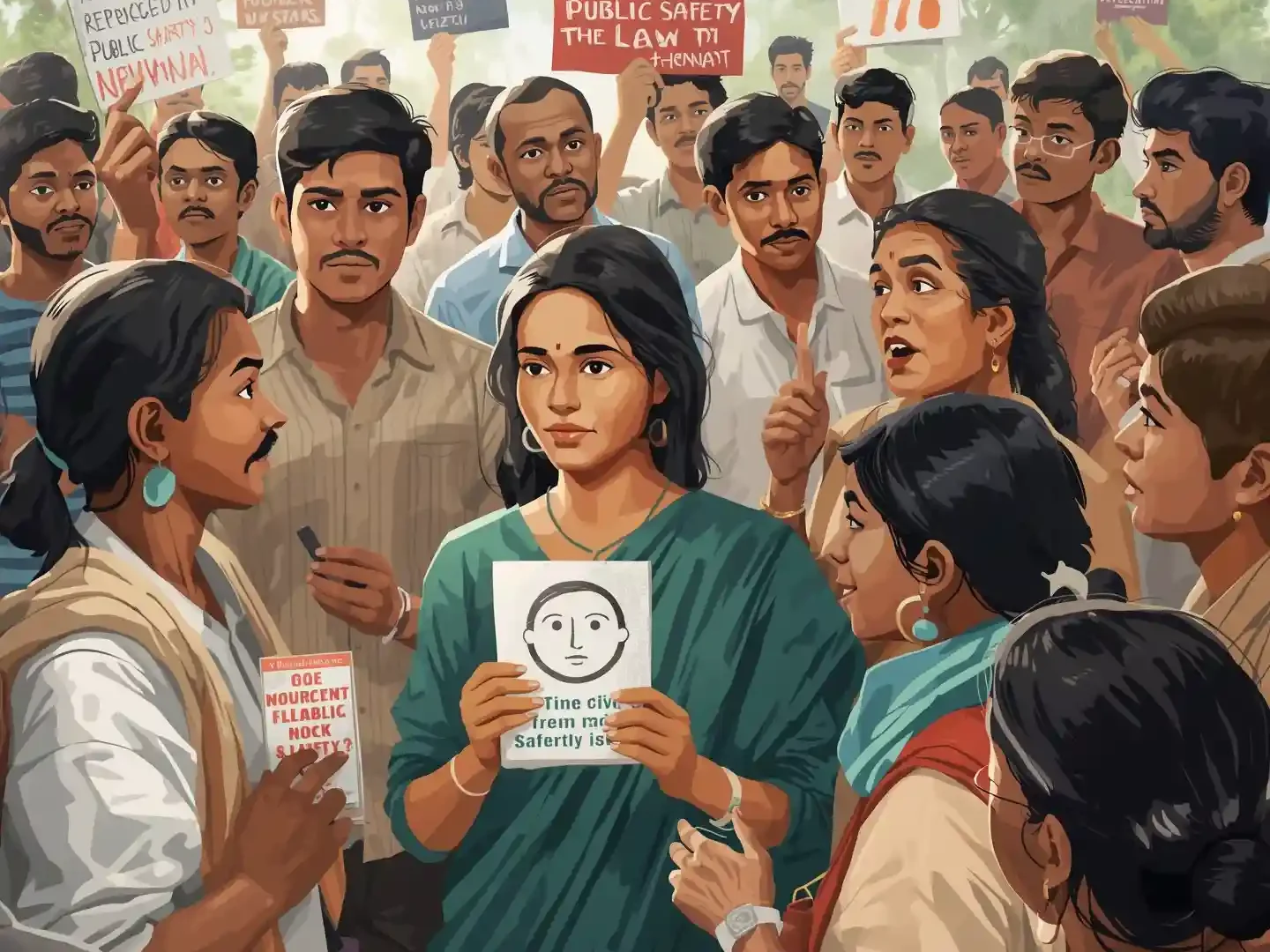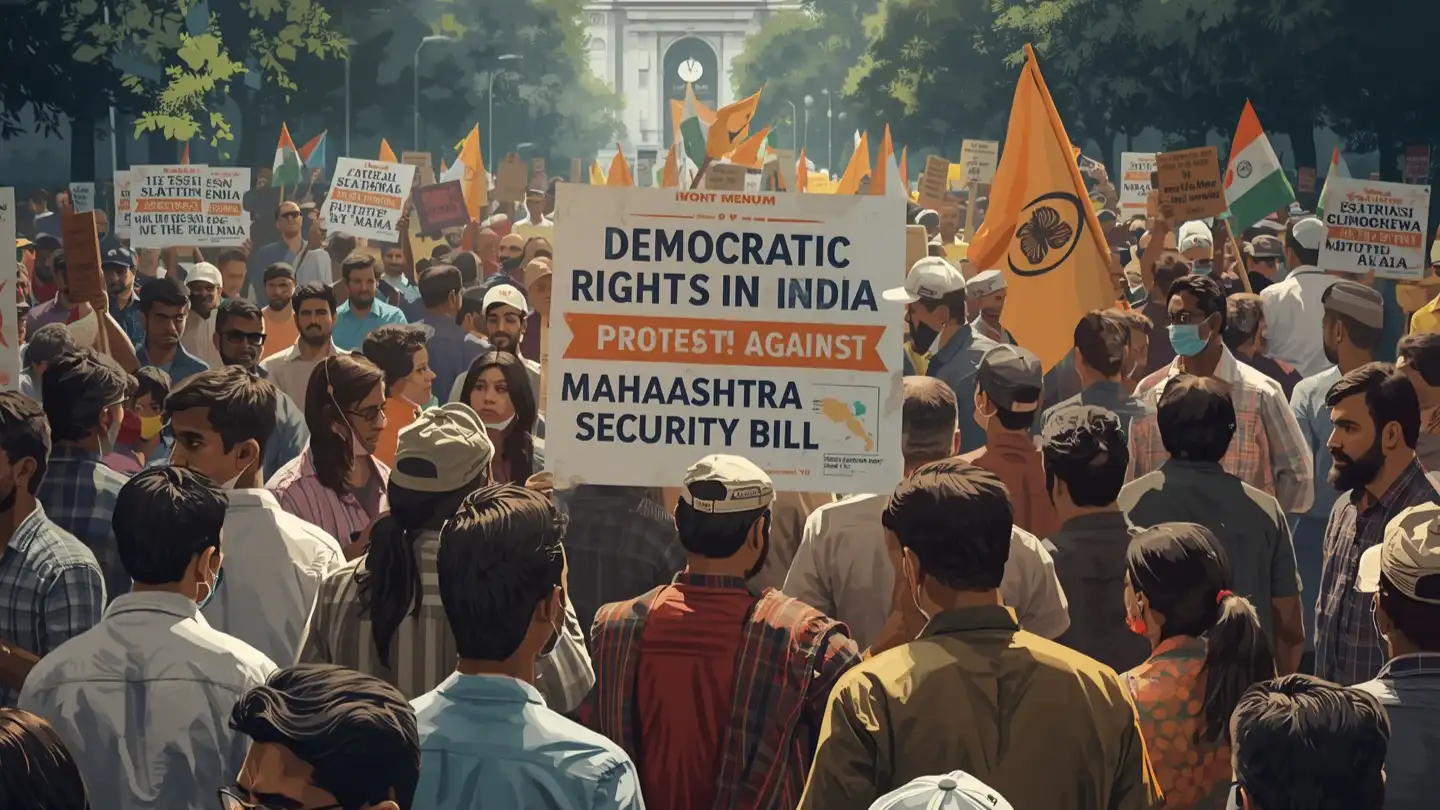Nationwide Protests Planned Against Maharashtra’s Special Public Security Bill
The Maharashtra Security Bill has sparked nationwide protests as citizens and civil rights groups raise concerns over threats to democratic rights in India. The blog explores the protests, key controversies, and the role of civil society in defending public freedoms.
The trendy creation of the Maharashtra public safety law has caused exceptional debate, dissent, and demonstrations. Residents, competition events, and civil rights groups have raised worries that the invoice should undermine democratic rights in India. In the course of towns and towns, plenty are making equipped for nationwide protests, highlighting the growing public anger over what’s being perceived as a draconian public safety law.
Where are protests happening against Maharashtra Security Bill?

Over the past weeks, the choice for protests against Maharashtra Security Bill has received momentum. Demonstrations were said in Mumbai, Pune, Nagpur, Nashik, and severa district towns.
Competition leaders have mobilized supporters, and pupil companies have joined forces with activists to assignment the bill’s provisions.The plan isn’t always limited to Maharashtra.
Numerous national businesses have extended harmony, making this part of larger nationwide protests. Candlelight marches, sit down-ins, and non violent rallies are being organized in Delhi, Bengaluru, and Kolkata, showcasing the breadth of resistance.
For more Cases like this you can check this article – E20 Petrol Policy 2025: Hidden Risks for You
Why are people protesting this bill?
The using force within the returned of protests against Maharashtra Security Bill lies in its sweeping powers. Critics argue that the proposed public safety law uses indistinct definitions of threats, probably criminalizing dissent and non violent meeting.
Here’s a simple table explaining why people are protesting the Maharashtra Security Bill:
| Reason | Explanation |
|---|---|
| Vague definitions | The bill uses unclear terms for “threats,” which could criminalize dissent and peaceful protests. |
| Excessive powers | Authorities can label groups as extremist without judicial oversight. |
| Harsh penalties | Strict punishments for association with certain groups, even without proven criminal activity. |
| Limits on legal recourse | Accused individuals may face restricted opportunities to defend themselves in court. |
| Threat to civil liberties | Civil rights groups fear it undermines democratic rights in India and free speech. |
Civil rights groups declare that normal citizens, activists, and newshounds can be unfairly focused. They evaluate the bill to colonial-era legislation, which curtailed freedoms underneath the guise of maintaining safety. For lots, this represents no longer just a country hassle but an immediate assault on democratic rights in India.
What’s wrong with the Maharashtra Security Bill?

The bill’s maximum controversial features encompass:
- Huge powers to designate corporations as extremist without judicial oversight.
- Strict penalties for association with such organizations, even with out proven criminal pastime.
- Provisions that restriction opportunities for criminal recourse once accused.
Legal professionals advise that the draft erodes constitutional safeguards. They warn that rather than improving protection, this public safety law may additionally want to silence dissent.
Here’s an alternative way to present it in Simplest way:
| Problem | Impact |
|---|---|
| Excessive authority | Groups can be declared extremist without court approval. |
| Severe punishments | People linked to these groups face strict penalties, even if innocent. |
| Restricted defense | Limited opportunities for legal recourse once accused. |
| Threat to freedoms | Could suppress dissent and endanger democratic rights in India. |
| Ambiguous language | Vague terms make the law open to misuse. |
The call for for amendments, therefore, continues to increase louder in nationwide protests.
Who is leading the protests?
Severa distinguished political leaders and civil rights groups are coordinating demonstrations. The Maha Vikas Aghadi alliance in Maharashtra has been vocal in opposing the bill.
Pupil unions, prison institutions, and impartial activists have additionally stepped in to set up protests against Maharashtra Security Bill.Human rights defenders emphasize that those gatherings are peaceful.
Their primary message is that while protection is crucial, it can’t come at the price of democratic rights in India.
Has the bill been changed after backlash?

In reaction to complaint, the kingdom authorities has redrafted certain sections of the bill. As an example, the time period “town naxals” has been modified with “left-wing extremist groups.” oversight committees had been proposed to display enforcement.
However, civil rights groups argue that these modifications are splendor. They insist that the essence of the public safety law nevertheless threatens freedoms. That is why nationwide protests maintain, and the demand for withdrawal in region of amendment has come to be the rallying cry.
Will the Governor or President approve the bill?
Presently, the Maharashtra Governor has received appeals from opposition occasions and activist organizations urging him now not to approve the law. Petitions have additionally been sent to the President of India, asking for intervention.
The choice stays pending, but the stress is excessive. Protests against Maharashtra Security Bill have amplified the difficulty nationally, making it difficult for government to brush aside. Regardless of the outcome, the debate has already reshaped conversations about democratic rights in India and the function of public safety law in a democracy.
The role of civil rights groups in shaping resistance
One of the maximum outstanding factors of this movement has been the active involvement of civil rights groups. From submitting objections to mobilizing businesses, those corporations have worked tirelessly to highlight the dangers posed thru the invoice.
They have in contrast the regulation to beyond instances wherein governments used wide powers to suppress opposition voices. Their function is apparent: real safety comes from strengthening democracy, no longer proscribing it.
| Role | Description |
|---|---|
| Awareness | Educate citizens about the threats posed by the bill. |
| Mobilization | Organize and lead nationwide protests and peaceful rallies. |
| Legal action | File objections and challenge provisions that violate democratic rights. |
| Advocacy | Lobby politicians and authorities to amend or withdraw the bill. |
| Protection of rights | Ensure the focus remains on safeguarding democratic rights in India. |
By means of rallying citizens, spreading cognizance, and main nationwide protests, those agencies make certain that the narrative stays focused on defensive democratic rights in India.
Public safety law versus civil liberties
Each authorities has a obligation to ensure protection, however the stability among safety and liberty remains sensitive. Supporters of the invoice argue that a sturdy public safety law is important to cope with extremist threats.
Warring parties, but, counter that the indistinct provisions open doors to misuse. The controversy shows the tension amongst safeguarding the kingdom and respecting person rights. Nationwide protests reflect this tension, as people demand prison tips that protect with out curtailing freedoms.
Democratic rights in India at a crossroads
Knowing their Fundamental Right is very important for Everyone. The communicate over the Maharashtra bill underscores big questions about the health of Indian democracy. Residents worry that if such legal guidelines are normalized, it will set a unstable precedent for one of a kind states.
The right to dissent, protest, and question authority forms the spine of democratic rights in India. With the aid of manner of participating in protests against Maharashtra Security Bill, humans are affirming that democracy can not continue to exist if voices of competition are criminalized.
Where does the movement go from here?
The coming weeks are important. If the bill receives assent, prison disturbing conditions are probably to follow. If once more, it’d mark a victory for civil society.
Both way, the episode has energized citizens, reminding them that participation is prime to maintaining democratic rights in India. As civil rights groups maintain to mobilize, and as nationwide protests unfold, the outcome will form the connection a number of the united states of america and its human beings for future years.:
Frequently Asked Questions (FAQs)
Q.What is the Maharashtra Security Bill?
It is a public safety law in Maharashtra aimed at preventing extremist activities.
Q.Why are people protesting it?
Citizens and civil rights groups fear it may criminalize dissent and restrict democratic rights in India.
Q.How does the bill affect democratic rights?
The bill gives broad powers to authorities, which could limit free speech, protest, and legal recourse.
Q.Where are the protests happening?
Major protests are reported in Mumbai, Pune, Nagpur, Nashik, and other cities, along with nationwide rallies.
Q.What powers does the law give authorities?
Authorities can label groups as extremist, impose strict penalties, and limit legal defenses for the accused.
Q.What role are civil rights groups playing?
They raise awareness, mobilize citizens, file legal objections, and advocate for protecting democratic rights in India.
Conclusion
The Maharashtra precise public safety law has become extra than a nearby legislative difficulty—it’s far now a national flashpoint. The fierce competition, the scale of nationwide protests, and the relentless advocacy by using civil rights groups spotlight the deep worries surrounding this law.
At its middle, the movement is ready shielding democratic rights in India. Whether or not through peaceful marches, petitions, or courtroom docket battles, citizens are making it clean that laws need to serve the human beings, no longer silence them.
On this war, the word protests against Maharashtra Security Bill isn’t always only a headline. It has emerge as a picture of collective resistance, civic responsibility, and the enduring fight for freedom in the worldwide’s biggest democracy.
Further Readings:
- Age Verification Laws 2025: How These Rules Keep Kids Safe
- OnlineMaharashtra Labour Law 2025
- E20 Petrol Policy 2025 Revolution for India
- Supreme Court Notice on EWS Treatment


Your point of view caught my eye and was very interesting. Thanks. I have a question for you.
Ya , ofcourse